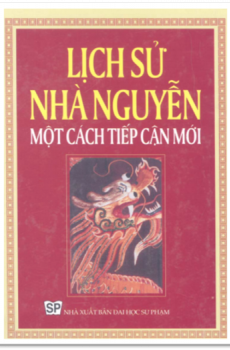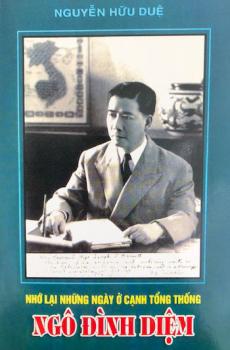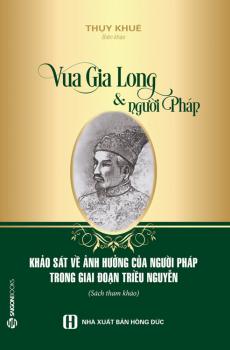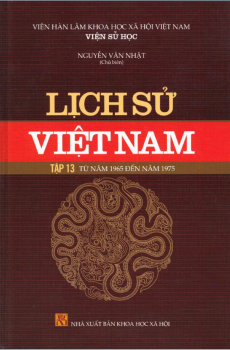Beacon Lights of History, Volume VIII
Beacon Lights of History, Volume VIII
Log in to download this book.
| Publisher | unknown |
|---|---|
| Accessible book producer | Public domain |
| Published year | 2003 |
| Coppy right | Chưa rõ |
***START OF THE PROJECT GUTENBERG EBOOK BEACON LIGHTS OF HISTORY, VOLUME VIII***
E-text prepared by Juliet Sutherland, Charlie Kirschner,
and the Project Gutenberg Online Distributed Proofreading Team
LORD'S LECTURES
BEACON LIGHTS OF HISTORY.
BY JOHN LORD, LL.D.
AUTHOR OF "THE OLD ROMAN WORLD," "MODERN EUROPE," ETC., ETC.
VOLUME VIII.
GREAT RULERS.
CONTENTS.
ALFRED THE GREAT.
THE SAXONS IN ENGLAND.
The early Saxons
Their conquest of England
Division of England into petty kingdoms
Conversion of the Saxons
The Saxon bishoprics
Early distinguished men
Isadore, Caedmon, and Baeda, or Bede
Birth and early life of Alfred
Succession to the throne of Wessex
Danish invasions
Humiliation and defeat of Alfred
His subsequent conquests
Final settlement of the Danes
Alfred fortifies his kingdom
Reorganizes the army and navy
His naval successes
Renewed Danish invasions
The laws of Alfred
Their severity
Alfred's judicial reforms
Establishment of shires and parishes
Administrative reforms
Financial resources of Alfred
His efforts in behalf of education
His literary labors
Final defeat of the Danes
Death and character of Alfred
His services to civilization
Authorities
QUEEN ELIZABETH.
WOMAN AS A SOVEREIGN.
The reign of Queen Elizabeth associated with progress
Her birth and education
Her trials of the heart
Her critical situation during the reign of Mary
Her expediences
Her dissembling
State of the kingdom on her accession to the throne
Rudeness and loyalty of the people
Difficulties of the Queen
The policy she pursued
Her able ministers
Lord Burleigh
Archbishop Parker
Favorites of Elizabeth
The establishment of the Church of England
Its adaptation to the wants of the nation
Religious persecution
Development of national resources
Pacific policy of the government
Administration of justice
Hatred of war
Glory of Elizabeth allied with the prosperity of England
Good government
Royal economy
Charge of tyranny considered
Power of Parliament
Mary, Queen of Scots
Palliating circumstances for her execution
Character of Mary Stuart
Her plots and intrigues
The execution of Essex
Other charges against Elizabeth
Her coquetry
Her defects
Her virtues
Her public services
Her great fame
Her influence contrasted with power
Verdict of Lord Bacon
Elizabethan era
Constellation of men of genius
HENRY OF NAVARRE.
THE HUGUENOTS.
The Cause and the Hero
The sixteenth century contrasted with the nineteenth
A New Spirit in the world
Differences of progress
Religious, civil, and social upheavals
John Calvin
Reformed doctrines in France
Persecution of the Huguenots
They arm in self-defence to secure religious liberty
Henry of Navarre
Jeanne D'Albret
Education of Henry
Coligny
Slaughter of St. Bartholomew
The Duke of Guise, Catherine de Medicis, and Charles IX.
Effects of the massacre
Responsibility for it
Stand taken by the Protestants
They retire to La Rochelle
Bravery and ability of Henry
Battle of Coutras
Battle of Ivry
Abjuration of Henry IV
His motives
The ceremony
Edict of Nantes
Henry's service to France
Effects of the Abjuration of Henry IV. on the Huguenots
Character of Henry
GUSTAVUS ADOLPHUS.
THIRTY YEARS' WAR.
The Thirty Years' War a political necessity
Agitation which succeeded the death of Luther
Brilliancy of the period
Persecution of the Protestants
Ferdinand II
Bohemia
Its insurrection
Renewed persecution
Its success
Elector Count Palatine
Rallying of German princes against the Emperor
Wallenstein
His successful warfare
Consternation of Germany
Gustavus Adolphus comes to its relief
Character of Gustavus Adolphus
His brilliant exploits
Balance of power
Dismissal and recall of Wallenstein
The contending forces
Battle of Lutzen
Death of Gustavus Adolphus
Peace of Westphalia
Its political consequences
Ultimate effects of the Thirty Years' War
CARDINAL RICHELIEU.
ABSOLUTISM.
State of France in the 17th Century
Elevation of Richelieu
He perceives the great necessities of the State
Makes himself necessary to Louis XIII.
His aims as Prime Minister
His executive ability
His remorseless tyranny
His warfare on the Huguenots
Aims of the Huguenots
La Rochelle
Fall of the Huguenots
Character of the Nobility; their decimation
The Queen-Mother
The Duke of Orleans
The justification of Richelieu
The Parliaments
Their hostilities
Their humiliation
The policy of Richelieu
His services to the Crown
His internal improvements
His defects of character
Necessity of absolutism amid treasons and anarchies
Abuse of absolutism
OLIVER CROMWELL.
ENGLISH REVOLUTION.
The Puritans
Their peculiarities
Love of Civil Liberty
Charles I. and his ministers
Laud
Strafford
Tyranny of the King
Persecution of the Puritans
Petition of Right
Reforms
The Parliament
Contest between the King and Parliament
War and Revolution
Characteristics of the Age
Rise of Cromwell
His military genius
Battle of Naseby
Of Preston
Conquest of Scotland
Execution of Charles I.
A war measure
The Independents gain ascendency
Conquest of Ireland
Cromwell made Protector of the army
Military despotism
Motives of Cromwell
His great abilities as a ruler
His services to England
Greatness of England under Cromwell
Cromwell contrasted with Louis XIV.
His intellectual defects
His death
Cromwell as an instrument of Providence
Occasional necessity of absolutism
Ultimate effect of Cromwell's rule
LOUIS XIV.
THE FRENCH MONARCHY.
Illustrious men on the accession of Louis XIV.
State of France
Ambition of Louis XIV.
His love of military glory
His character
His inherited greatness
His alliance with the Church
His unbounded power
His great ministers
Colbert
Aims of Colbert
His great services
Louvois
His great executive abilities
The first war of Louis XIV.
Conquest of Flanders
Its iniquity
Invasion of Holland
Easy victories
Rise of William of Nassau
Prevents the conquest of Holland
Peace of Nimeguen
Louis in the zenith of power
His aggrandizement
His palaces
His court
His mistresses
His friendship with Madame de Maintenon
Elevation of Maintenon
Religious persecution
Revocation of the Edict of Nantes
Coalition against Louis XIV.
Unfortunate wars
Humiliation
His death
Effects of his reign in France
LOUIS XV.
REMOTE CAUSES OF REVOLUTION.
Long reign of Louis XV.
Decline of French military power
Loss of colonial possessions
Cardinal Fleury
Duke of Orleans
Derangement of the finances
Injustice of feudal privileges
John Law
Mississippi scheme
Bursting of the bubble
Excessive taxation
Worthlessness of the nobility
Their effeminacy and hypocrisy
Character of the King
Corruption of his court
The Jesuits
Death of the King
The reign of court mistresses
Madame de Pompadour
Extravagance of the aristocracy
Improvements of Paris
Fall of the Jesuits
The Philosophers and their writings,--Voltaire, Rousseau
Accumulating miseries and disgraceful government
PETER THE GREAT.
HIS SERVICES TO RUSSIA.
State of Russia on the accession of Peter the Great
The necessity for a great ruler to arise
Early days of the Czar Peter
Accession to the throne
Lefort
Origin of a navy
Seizure of Azof
Military reform
Peter sets out on his travels
Works as a carpenter in Holland
Mentchikof
Peter visits England
Visits Vienna
Completion of the apprenticeship of Peter
He abolishes the Streltzi
Various other reforms
Opposition of the clergy
War with Charles XII. of Sweden
Battle of Narva
Siege of Pultowa
Peter invades Turkey
His imprudence and rashness
Saved by the sagacity of his wife Catherine
Foundation of St. Petersburg
Second tour of Europe
Misconduct and fate of Alexis
Coronation of Catherine I.
Character of Peter
His great services to Russia
FREDERIC THE GREAT.
THE PRUSSIAN POWER.
Characteristics of the man
Education of Frederic II.
His character
Becomes King
Seizure of a part of Liège
Seizure of Silesia
Maria Theresa
Visit of Voltaire
Friendship between Voltaire and Frederic
Coalition against Frederic
Seven Years' War
Carlyle's History of Frederic
Empress Elizabeth of Russia
Decisive battles of Rossbach, Luthen, and Zorndorf
Heroism and fortitude of Frederic
Results of the Seven Years' War
Partition of Poland
Development of the resources of Prussia
Public improvements
General services of Frederic to his country
His character
His ultimate influence














